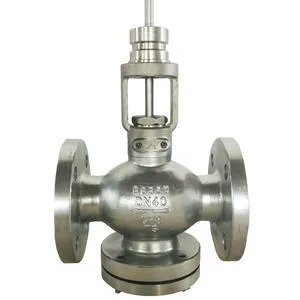An electric control valve is a type of valve that is equipped with an electric actuator, which enables remote and automated control of the valve's opening and closing actions. The actuator is powered by electricity and can be controlled through various control systems, such as PLCs (Programmable Logic Controllers) or DCS (Distributed Control Systems), allowing for precise and flexible manipulation of the valve's position.

The electric actuator in an electric control valve replaces the traditional manual operation or pneumatic/hydraulic actuators that require manual intervention or the use of compressed air/fluid. The use of an electric actuator provides several advantages:
1. Remote Control: Electric control valves can be operated remotely, making them suitable for applications where manual access is difficult or unsafe.
2. Automation: These valves can be integrated into automated control systems, enabling them to respond to signals from sensors and other equipment without human intervention.
3. Precision: Electric actuators offer precise control over the valve's position, allowing for accurate regulation of flow rates, pressures, or other process parameters.
4. Flexibility: Electric control valves can be easily integrated into various control strategies and systems, providing flexibility in adapting to changing process requirements.
5. Feedback and Monitoring: Many electric control valves come with position feedback mechanisms that provide real-time information about the valve's status, aiding in monitoring and troubleshooting.
Electric control valves find applications in various industries, including manufacturing, water treatment, HVAC (Heating, Ventilation, and Air Conditioning), chemical processing, and more. They play a crucial role in automating processes, optimizing efficiency, and ensuring precise control over fluid flow and process parameters.